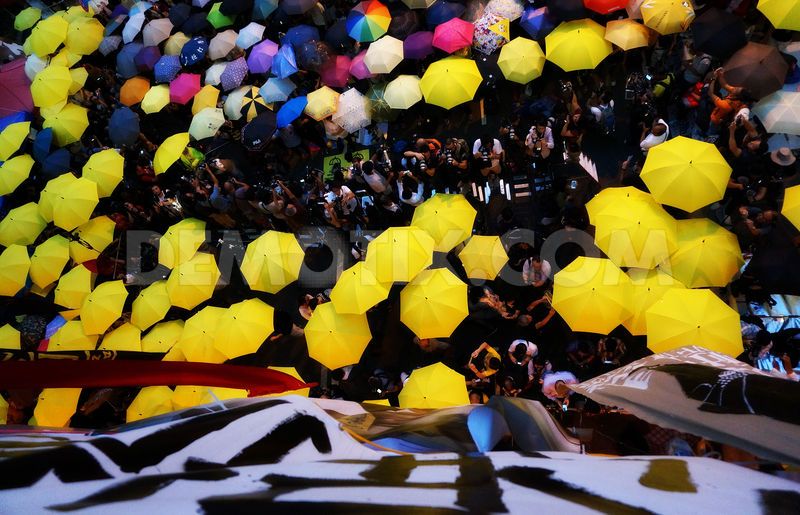
Now in its tenth week, the pro-democracy movement in Hong Kong still shows no sign of disappearing. Although the number of protesters has been steadily shrinking, the movement itself has intensified in terms of violence. In late November-early December, there were several incidents of protests breaking into government buildings by force. On November 19, a small group broke into the legislature. On December 1, a larger number attempted to take over the government headquarters in Admiralty. Both incidents triggered a strong response from the Hong Kong police, who used force and pepper spray to clear the crowd.
At this point, the movement is divided. Contention concerning how to proceed has dragged on with little progress. While the most serious protesters are pushing for greater confrontation with the authorities, many wish to remain peaceful.
Public opinion polls suggest that Hong Kong residents are quickly growing tired of the ongoing protests. Many complain that their daily life is being seriously disrupted and that their businesses and livelihoods are being threatened. In response, the protesters worry more about the future than the present, insisting that disruption is a price they must pay more for freedom, democracy, and a better future.
Despite it’s being deemed a domestic affair by China, the movement has verged on becoming a divisive issue internationally. Last week, several British MPs on the Foreign Affairs Committee wanted to visit Hong Kong to assess the situation through an inquiry, but their request was denied by the Chinese embassy in London. The visit was part of the Foreign Affairs Select Committee’s investigation into relations between the UK and its former colony. The House held a debate on this issue on December 2, during which some MPs accused the Chinese government of “bullying” Britain. One MP pointed out that by denying their visit, China was showing weakness instead of strength. “This arbitrary action,” one MP stressed, “can only hurt China’s reputation.”
In response, a Chinese government official made it clear that China does not need foreign governments to carry out investigations on its own territory. Richard Ottaway, the chairman of the British Foreign Affairs Committee in parliament, clarified that there is no necessary connection between their visit and the protest in Hong Kong. Their inquiries started long before the current wave of protests and will be conducted in private. According to Ottaway, the Committee has never been turned away by any country since he became chairman five years ago.
As it stands, the pro-democracy movement in Hong Kong is in a discouraging position. Peaceful demonstrations have not proved an effective method of gaining Beijing’s attention. While maintaining the status-quo risks losing momentum, escalation carries its own risks, most notably, the loss of international public support.




